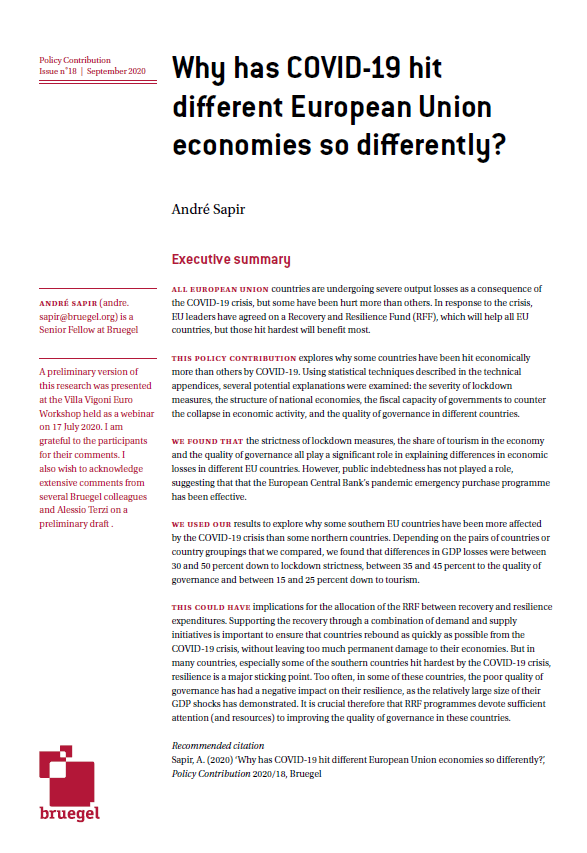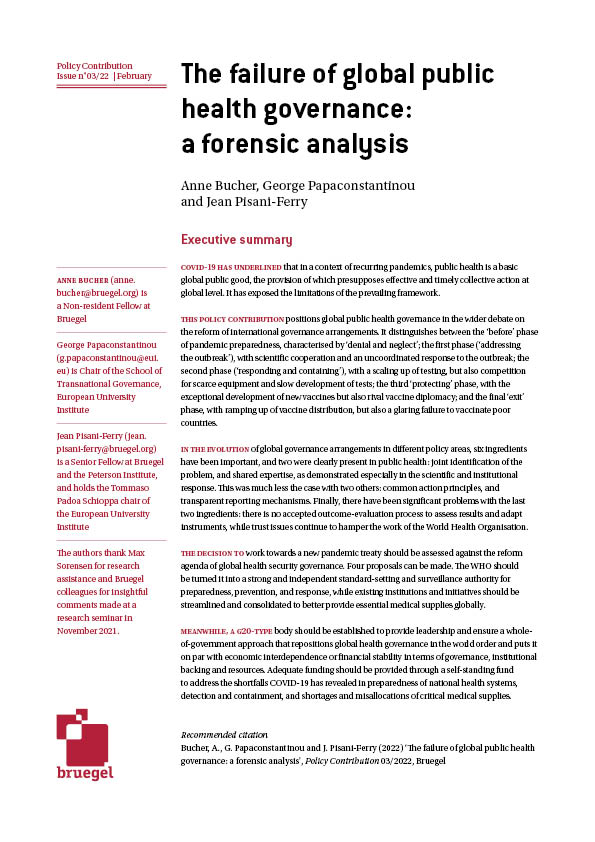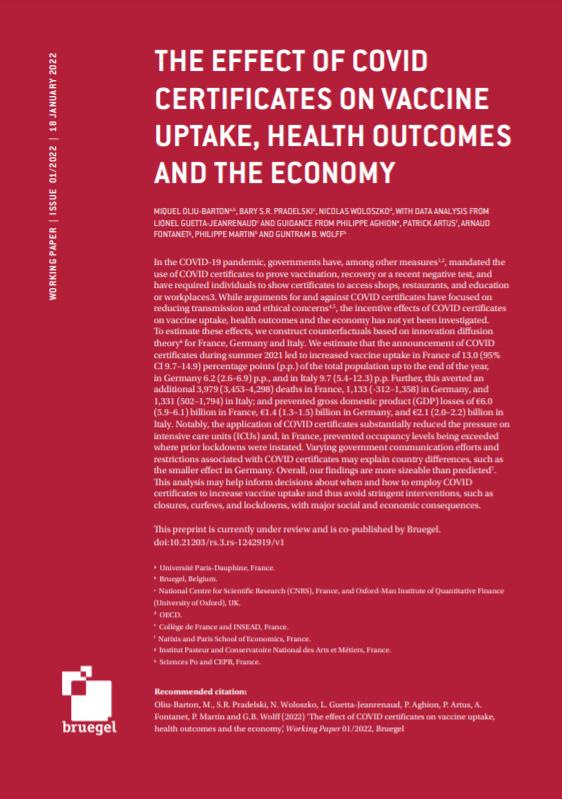Policy Contribution
Why has COVID-19 hit different European Union economies so differently?
All European Union countries are undergoing severe output losses as a consequence of COVID-19, but some have been hurt more than others. Factors potentially influencing the degree of economic contraction include the severity of lockdown measures, the structure of national economies, public indebtedness, and the quality of governance in different countries. With the exception of public indebtedness, we find all these factors are significant to varying degrees.
All European Union countries are undergoing severe output losses as a consequence of the COVID-19 crisis, but some have been hurt more than others. In response to the crisis, EU leaders have agreed on a Recovery and Resilience Fund (RFF), which will help all EU countries, but those hit hardest will benefit most.
This Policy Contribution explores why some countries have been hit economically more than others by COVID-19. Using statistical techniques described in the technical appendices, several potential explanations were examined: the severity of lockdown measures, the structure of national economies, the fiscal capacity of governments to counter the collapse in economic activity, and the quality of governance in different countries.
We found that the strictness of lockdown measures, the share of tourism in the economy and the quality of governance all play a significant role in explaining differences in economic losses in different EU countries. However, public indebtedness has not played a role, suggesting that that the European Central Bank’s pandemic emergency purchase programme has been effective.
We used our results to explore why some southern EU countries have been more affected by the COVID-19 crisis than some northern countries. Depending on the pairs of countries or country groupings that we compared, we found that differences in GDP losses were between 30 and 50 percent down to lockdown strictness, between 35 and 45 percent to the quality of governance and between 15 and 25 percent down to tourism.
This could have implications for the allocation of the RRF between recovery and resilience expenditures. Supporting the recovery through a combination of demand and supply initiatives is important to ensure that countries rebound as quickly as possible from the COVID-19 crisis, without leaving too much permanent damage to their economies. But in many countries, especially some of the southern countries hit hardest by the COVID-19 crisis, resilience is a major sticking point. Too often, in some of these countries, the poor quality of governance has had a negative impact on their resilience, as the relatively large size of their GDP shocks has demonstrated. It is crucial therefore that RRF programmes devote sufficient attention (and resources) to improving the quality of governance in these countries.
Recommended citation
Sapir, A. (2020) ‘Why has COVID-19 hit different European Union economies so differently?’, Policy Contribution 2020/18, Bruegel











